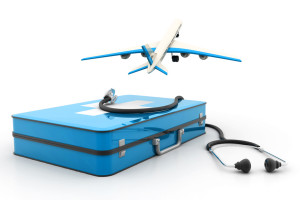Medical Tourism is a growing trend for people looking for affordable health care solutions around the world. While more and more people are traveling abroad to seek medical treatments, Thailand has become a major destination for Canadians looking to receive medical care. With a flourishing healthcare sector, Thailand offers a combination of high-quality medical services, experienced medical staff, and low treatment costs that provides an attractive solution for medical tourism.
Thailand’s medical sector is well-established and comprehensive. Thailand ranks among the world’s top medical tourism’s destinations for quality and standards of care, as well as customer service. With state-of-the-art medical facilities and world-class physicians, Thailand has become a firm favorite for Canadians looking for specialized and advanced medical treatments abroad. Moreover, medical fees in Thailand tend to be much lower than in countries like the United States and Canada, making it a more affordable option for medical tourists.
For Canadians, travelling to Thailand for medical treatments also provides them with the opportunity to experience the local culture and vibrant atmosphere of the country. From exploring the historical temples and national parks, to taking part in local festivities, medical tourists can truly immerse themselves in the unique Thai lifestyle. For many, this is the perfect way to take a break from their day-to-day life and feel relaxed and rejuvenated before their treatments.
There is also a wide range of treatments and procedures being offered in Thailand. From cosmetic surgery to dentistry, orthopedics, eye treatment and even fertility treatments, Thailand has a great selection of medical solutions and services in areas that are often not easily accessible at home. This makes it the ideal solution for Canadians looking for a wider range of care solutions and treatments.
With a growing reputation as an attractive destination for medical tourism, Canada is taking a sharp look at Thailand to explore the possibility of health care infrastructure solutions. While Canadians cannot currently receive medical care in Thailand, there are several Canadian health care providers that are opening up in Bangkok and also Chiang Mai, with more being built throughout Thailand.
By providing Canadians with access to the world-class healthcare facilities available in Thailand, Canadian health care providers are positioning themselves to better serve Canadians looking for solutions abroad. With an ever-increasing demand for medical tourism, Canadian medical providers offer support and peace of mind for Canadians looking to get the best medical treatments abroad.
The trend of medical tourism is quickly gaining traction in Canada and Thailand is the perfect destination for Canadians. With quality care, experienced medical staff, and low-cost medical solutions, Thailand is one of the most sought-after medical tourism destinations by Canadians.









